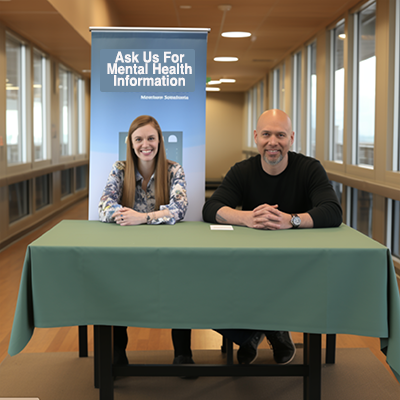Mental Health Crisis
The mental health of our community is my top priority.
We are faced with a paradox of living in one of the best places in america and yet we are one of the leaders in suicides for over a decade now.
Let’s work together to take care of our friends and family in need.
I have been told this is not my problem… Well, that is the problem, we all need to make this a priority.
 “Amidst the amazing success our community has experienced, somewhere along the way we have forgotten how to love our neighbor…”
“Amidst the amazing success our community has experienced, somewhere along the way we have forgotten how to love our neighbor…”
Colorado is #5 in the country in suicide;
El Paso county is #1 in the state.
Addressing our mental health and suicide crisis at the community level is crucial. We need to improve access for professional care, reduce the stigma associated with mental health challenges, develop earlier intervention, increase awareness, and develop stronger support systems.
When a community neglects to address mental health issues within their neighborhoods, the consequences can be far-reaching and affect various aspects of individuals’ lives and the community as a whole. Here are some potential costs, effects, changes, increases, and issues that a community may face when mental health is not prioritized:
Increased Healthcare Costs:
Untreated mental health issues may lead to more severe conditions over time, resulting in increased healthcare costs for both individuals and the community as a whole.Reduced Work Productivity:
Mental health issues can impact an individual’s ability to perform well at work, leading to decreased productivity and economic losses for the community.Higher Rates of Substance Abuse:
Individuals struggling with untreated mental health issues may turn to substances like drugs or alcohol as a coping mechanism, leading to an increase in substance abuse problems within the community.Elevated Crime Rates:
Unaddressed mental health issues can contribute to increased crime rates as individuals may engage in illegal activities as a result of their untreated conditions.Strained Family Relationships:
Mental health issues can strain family relationships, leading to higher rates of family breakdowns, divorces, and challenges in parenting.Educational Challenges:
Students with untreated mental health issues may struggle academically, leading to lower educational attainment and increased dropout rates.Social Isolation and Stigma:
Individuals facing mental health challenges may experience social isolation due to stigma and discrimination, creating a less supportive and connected community.Impact on Physical Health:
Mental health issues are often linked to physical health problems. Neglecting mental health can contribute to an increase in overall health issues within the community.Loss of Human Capital:
When individuals with untreated mental health issues are not able to reach their full potential, the community may lose valuable human capital, creativity, and innovation.Increased Suicide Rates:
The ultimate consequence of untreated mental health issues can be an increase in suicide rates, which has a profound impact on families and the community at large.Strain on Social Services:
The lack of mental health support may lead to increased demand for social services, such as emergency intervention, counseling, and rehabilitation programs, putting a strain on available resources.Long-Term Economic Consequences:
Over time, the cumulative impact of unaddressed mental health issues can lead to long-term economic consequences for the community, including decreased economic productivity and increased dependency on social welfare programs.Community Disengagement:
A community that does not prioritize mental health may experience higher levels of disengagement and apathy among its residents, negatively affecting civic participation and community development.
How David will work to improve mental health in our COMMUNITY:
- Collaboration: Bring community partners together to organize a strategic response to this crisis.

- Improved Access: Communities can provide mental health services and support to individuals who may not have access to professional care.

- Stigma Reduction: Using my office I will address mental health issues within the community to reduce the stigma associated with mental illness and promote acceptance and understanding.

- Early Intervention: Early identification and intervention for mental health issues can lead to better outcomes and prevent more severe conditions from developing.

- Increased Awareness: Community-based mental health initiatives can raise awareness about mental health and encourage individuals to seek help.

- Stronger Support Systems: Communities can provide a support system for individuals with mental health issues, helping them feel less isolated and increasing their chances of recovery.

MY WHY